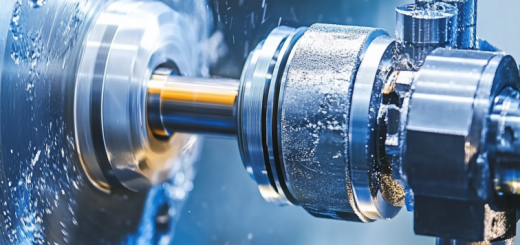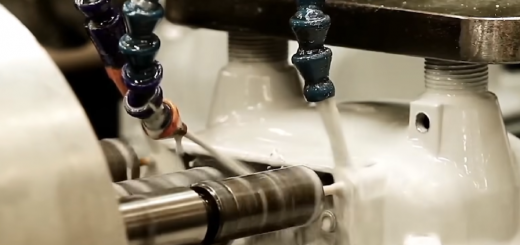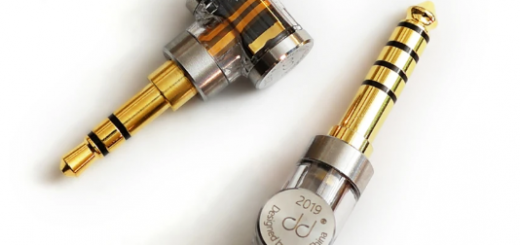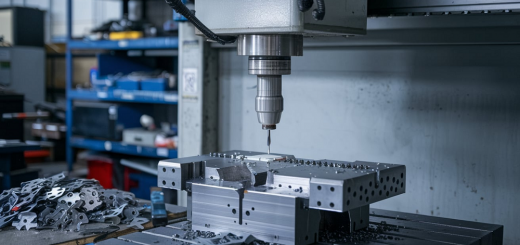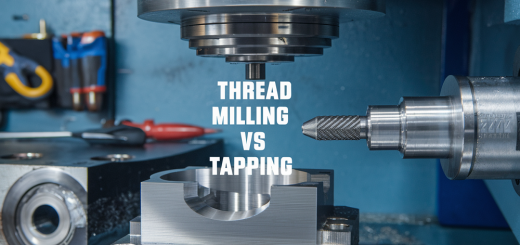Top 5 Best Benchtop Milling Machines (Mini Mills)
If you’re considering purchasing a benchtop milling machine, you’re likely faced with a range of options and questions. Are mini mills good enough for your needs? Should you invest in a smaller machine or make room for a heavy-duty industrial model? This guide compiles the most critical factors to consider and reviews the top 5 best benchtop milling machines to help you make an informed decision.
1. JET JMD-18 Benchtop Milling Machine
The JET JMD-18 is a powerful and feature-packed benchtop milling machine designed for professional use. Equipped with a 2-horsepower motor, it offers a wide speed range from 150 to 3,000 RPM and features a 360° swiveling head for unparalleled flexibility. Its large worktable (9.5 x 32.25 inches) and one-piece cast iron column provide excellent support and stability for heavy-duty projects. Additional features include a hinged belt cover for quick speed changes, heavy-duty tapered roller bearings for precision, and a locking collet for safety. While it is one of the more expensive options, the JMD-18’s durability and high performance make it a top choice for demanding applications.

- Pros:
- Durable and precise with a one-piece cast iron column.
- Ideal for working with wood, aluminum, and ceramic tiles.
- Large worktable provides ample space for bigger projects.
- Cons:
- Higher price point.
2. Klutch Mini Milling Machine
The Klutch Mini Milling Machine is a budget-friendly option made with cast iron construction for vibration-free operation and durability. Powered by a 0.5-horsepower motor, it delivers variable speeds between 100 and 2,500 RPM, making it versatile for various light to medium-duty tasks. The head tilts 45° in both directions, enhancing its adaptability for angled cuts. Compact and lightweight, this machine is perfect for small workshops or users who need portability. While it lacks advanced features like 360° head rotation and accessories, it’s an excellent choice for those looking for an affordable and reliable benchtop mill.

- Pros:
- Affordable and durable.
- Compact design is ideal for small workshops.
- Cons:
- Limited head rotation compared to more expensive models.
- Lack of included accessories like a stand or light.
3. JET 350017 Benchtop Mill Machine
The JET 350017 Benchtop Mill Machine is a professional-grade milling machine that excels in both durability and precision. Built with a one-piece cast iron column for enhanced stability, it boasts a powerful motor and features a 360° swiveling head for ultimate flexibility. Its large worktable (9.5 x 32.25 inches) accommodates bigger projects, while heavy-duty tapered roller bearings ensure accurate drilling and milling. Other highlights include a quick belt adjustment system, adjustable handwheel knobs, and a built-in work light. Though priced higher than other models, it offers exceptional performance and reliability for professional and serious hobbyist use.

- Pros:
- Powerful and precise with a high-quality build.
- Includes a work light and easy-to-read gauges.
- Cons:
- Relatively expensive.
- No included accessories.
4. WEN 33013 Benchtop Milling Machine
The WEN 33013 Benchtop Milling Machine offers a balance of versatility and affordability for hobbyists. It features a 4.5-amp motor with variable speeds ranging from 100 to 2,500 RPM, along with an 11.8-inch x-axis and 5.1-inch y-axis travel. The machine’s head tilts up to 45° in both directions, enabling angled cuts in wood, plastic, and metal. Made with durable cast iron, it includes safety features like an emergency stop button and comes pre-installed with a drill chuck, spindle taper, and chuck guard. Compact and easy to use, this model is a reliable choice for small to medium-sized projects.

- Pros:
- Affordable and reliable for most small to medium tasks.
- Includes safety features like an emergency stop button.
- Cons:
- Limited head rotation compared to higher-end machines.
5. Proxxon 37110 Micro Mill MF70
The Proxxon 37110 Micro Mill MF70 is a compact and lightweight benchtop milling machine designed for precise, small-scale projects. Constructed with an aluminum body and cast iron base, it weighs just 15.5 pounds and offers fine incremental adjustments of 0.002 inches. Powered by a 100-watt magnetic motor, it delivers variable speeds ranging from 5,000 to 20,000 RPM, making it ideal for delicate work with materials like aluminum, steel, and cast iron. While it’s not suited for heavy-duty tasks, the MF70 comes with a range of accessories and a two-year warranty, making it one of the best affordable options for hobbyists and precision work.

- Pros:
- Excellent for small, detailed work.
- Affordable and backed by a two-year warranty.
- Cons:
- Small 100-watt motor limits its capability to light-duty tasks.
Key Considerations for Choosing a Benchtop Milling Machine
When selecting a milling machine, it’s essential to understand the factors that make a machine suitable for your needs. Here are the primary considerations:
- Brand and Country of Origin
Machines are typically manufactured in either China or Taiwan, with Taiwanese machines generally regarded as higher quality. That said, the brand plays a significant role in quality control and customer service. For instance, Precision Matthews ensures that only high-quality castings are used for their machines, whereas lesser-known brands may use lower-quality components. - Capacity and Work Envelope
The size of the machine determines the size of materials you can work with. While smaller machines have limited capacity, they are often sufficient for most hobbyist projects. However, if you need to work on larger items, like resurfacing engine blocks, you may need a larger machine. - Rigidity
Rigidity greatly affects accuracy. Mini mills are typically column-style machines, where the head moves up and down a column. A robust, square-column design with sturdy dovetails and secure attachments ensures better rigidity compared to round-column machines. - Power and Torque
Most benchtop machines are powered by electric motors, with either a belt drive or gear drive system. While belt drives are quieter and smoother, gear drives may offer more robust performance for heavy-duty tasks. Ensure the motor provides sufficient torque for the materials you plan to mill. - Features
Features like digital fine feed controls, spindle taper compatibility, and worktable size can make a significant difference in usability. Machines with digital scales and adjustable spindle speeds offer more precision and flexibility.

